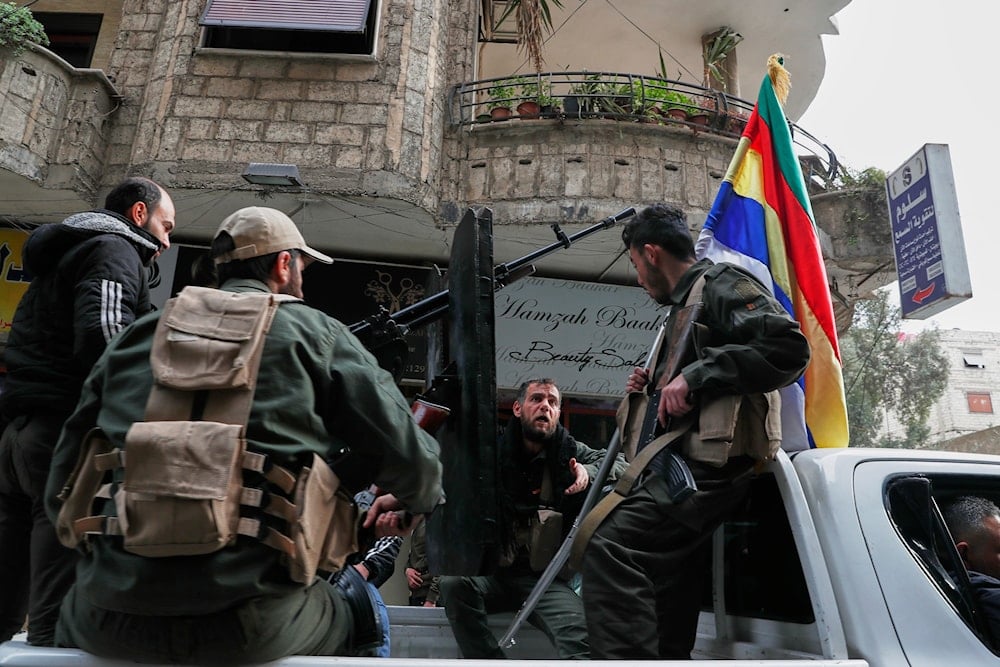No agreement with Damascus, ready to fight: Druze spiritual leader
Al-Hijri reaffirmed the Druze stance regarding the current government, following his previous criticisms of Damascus after it announced the constitution.
-

Druze fighters ride on a pickup truck holding a Druze flag as they wait for Syrian government security forces on the streets of the town of Jaramana, in the southern outskirts of Damascus, Syria, March 3, 2025 (AP)
There is no agreement between the Druze and the Damascus government, and fighters in Suwayda are prepared to engage in combat and repel government forces if necessary, announced Sheikh Hikmat al-Hijri, the spiritual leader of the Druze community in Syria.
Al-Hijri explained that "talks with the Damascus government are ongoing, but the difficulty in reaching an agreement is evident", adding that "armed terrorist factions now see themselves as the de facto authority in Damascus—a situation that is unacceptable both to Syrians and the international community" in an interview with NPR on Thursday.
Sheikh al-Hijri stressed that the Druze forces, which have maintained security in Suwayda, "will remain as they are", continuing to control the province’s borders with Syrian government-held territories—adding that they "are mobilizing fighters and preparing defenses to repel government forces if needed."
He affirmed that the Druze are not looking for any foreign intervention "because this is a transitional stage and a dangerous point," noting that bloodshed always leads to more bloodshed, and the Druze "refuse sectarianism, and want a civil state."
Earlier, al-Hijri condemned Syria's interim government, stating that its recently announced constitution was drafted by a handpicked committee designed to consolidate power for a single ruler rather than establish genuine democracy.
Al-Hijri blasted the interim government for unilateral decision-making, excluding meaningful participation, and dismissing the National Dialogue Conference as a rushed, five-hour formality that produced recycled, disappointing outcomes.
He criticized the administration for failing to develop proper state institutions while continuing to disregard public demands and the original objectives of the revolution.
The spiritual leader voiced alarm over the current climate, characterizing it as unstable and artificial – a manufactured facade propped up by hollow rhetoric meant to project false unity internationally. He also condemned the administration's personnel decisions, citing the installation of incompetent leaders alongside the capricious removal of experienced officials across government institutions.
Sheikh al-Hijri reiterated his openness to cooperation for national stability, but demanded immediate course corrections - including scrapping the current constitution and establishing a legitimate democratic framework representing all Syrians.

 2 Min Read
2 Min Read










